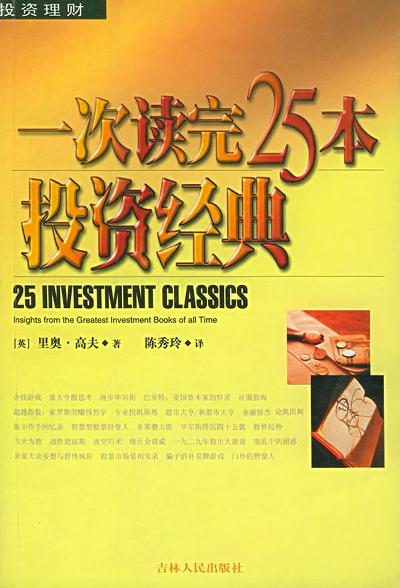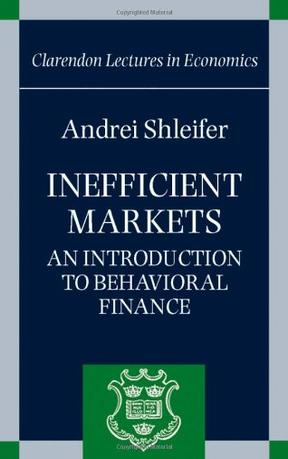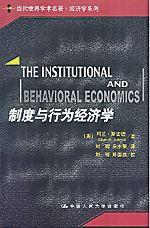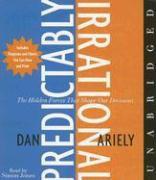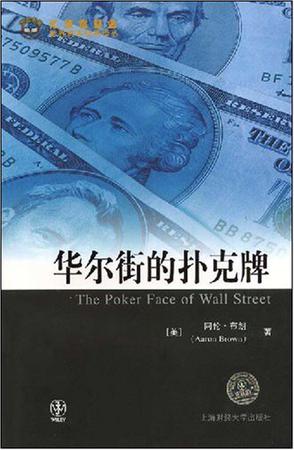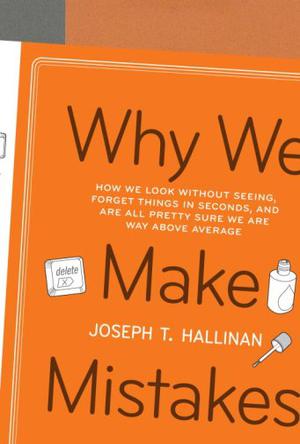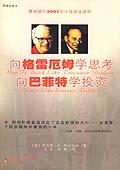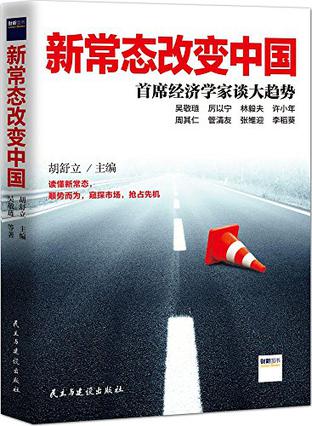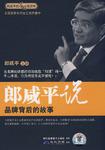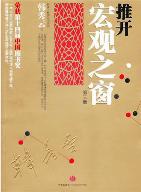欢迎来到相识电子书!
标签:经济
-
一次读完25本投资经典
本书收录了25本几代投资人一再购买、阅读的经典之作,它们为个别投资人解决了“从何处着手”的根本问题。散户不能尽信专家的说词,但在没有任何名师指导的情况下,散户想从市场上取得投资知识,可得付出相当大的代价。本书即是名家指导。 -
投资最重要的事(全新升级版)
《投资最重要的事:全新升级版》取材于作者霍华德·马克斯著名的投资备忘录,这些备忘录是包括巴菲特在内的全球专业投资者推崇备至的。全新升级版除了饱含马克斯的投资智慧之外,新加入了4位知名投资专家及教育家的评论、看法及不同意见,分别是: ·克里斯托弗·戴维斯:著名基金经理,服务于戴维斯投资顾问公司,以奉行价值投资及进行严格的行业筛选著称。 ·乔尔·格林布拉特:哥谭资本公司创始人,投资类畅销书《股市稳赚》的作者,其以对非理性投资行为的敏锐洞察而大获成功。 ·保罗·约翰逊:哥伦比亚大学商学院副教授,善于巧妙地将市场智慧融入他的证券分析和价值投资课程。 ·塞思·卡拉曼:包普斯特集团总裁,著有重要的投资类经典《安全边际》。 诸位专家就“第二层次思维”、价格与价值的关系、耐心等待机会、防御性投资等概念发表了精彩的真知灼见。全新升级版新增一章来探讨合理预期的重要性,作者本人也加入了评论,扩充了原先讨论的主题。同时,邀请了被《纽约时报》称为“华尔街大师中的翘楚”的布鲁斯·格林沃尔德撰写前言,就价值投资、生产率、信息经济等概念娓娓道来。 -
Inefficient Markets
The efficient markets hypothesis has been the central proposition in finance for nearly thirty years. It states that securities prices in financial markets must equal fundamental values, either because all investors are rational or because arbitrage eliminates pricing anomalies. This book describes an alternative approach to the study of financial markets: behavioral finance. This approach starts with an observation that the assumptions of investor rationality and perfect arbitrage are overwhelmingly contradicted by both psychological and institutional evidence. In actual financial markets, less than fully rational investors trade against arbitrageurs whose resources are limited by risk aversion, short horizons, and agency problems. The book presents and empirically evaluates models of such inefficient markets. Behavioral finance models both explain the available financial data better than does the efficient markets hypothesis and generate new empirical predictions. These models can account for such anomalies as the superior performance of value stocks, the closed end fund puzzle, the high returns on stocks included in market indices, the persistence of stock price bubbles, and even the collapse of several well-known hedge funds in 1998. By summarizing and expanding the research in behavioral finance, the book builds a new theoretical and empirical foundation for the economic analysis of real-world markets. -
市场营销
凯林等教授的《市场营销》是世界上最畅销的市场营销教科书。本书以反应当前顾客关系管理和顾客价值创造为核心的市场营销理念为指导思想,运用独特、创新和有效的教学方法,整体综合地展现了当代营销理念,与同类型的市场营销学教材相比可谓出类拔萃。同时,秉承前面8个版本的一贯风格,本书在严密的逻辑构架下,引入大量对企业、营销专家和企业家生动、准确的描述案例,帮助读者更深入地理解和掌握市场营销。 作为市场营销教材,本书已被翻译成11种语言,除了作者教导过的超过5万名学生,世界上有超过100万名学生从中受益。现代社会的个人,学习、工作和生活中都离不开营销,非营销专业的学生和从业者,也有必要获得这方面的知识和洞察力。本书写作风格易于阅读和理解,是学习营销知识的最佳选择。 -
谁伤了你的幸福?
《谁伤了你的幸福?》适合公司白领、企业高管、政策研究者、政策制定参与者、关心个人生存环境的普通读者。中国经济获得了史无前例的快速发展,但是在社会财富迅速积累的同时,中国社会也开始面对更为复杂的局面和种种社会问题,集中表现为大多数社会公众幸福感的增长滞后于经济发展,甚至不升反降——不安全感、焦虑感和不信任感普遍存在,而且与日俱增。对一个国家而言,人民幸福才是经济发展的终极目的。因此,我们非常有必要深入反思经济发展与人民幸福之间的差距。《谁伤了你的幸福?》针对国人这种不幸福的生存状态,从经济和市场的角度出发,由现象到反思,深入浅出地讲述中国经济发展中面临的问题和寻求解决的思路,进而探讨未来的改革之路。 -
三天读懂世界经济
《三天读懂世界经济:用最短的时间最全面地了解世界经济》主要内容简介:美元为什么“跌跌不休”?全球财富是如何发生转移的?美国犯错,损失为什么让全世界买单?人民币崛起=中国国力增强?人民币能否成为世界货币?我们为什么买不起房?各国政府都有哪些房地产政策?油价由欧佩克决定还是由华尔街决定?新能源:救世主还是水花镜月?中美贸易摩擦:剑指人民币升值?全球贸易何时全面回暖?跨国公司如何占领全球市场制高点?世界工厂是如何转移的?全球经济衰退滞缓到何时?中国的位置在何处?…… -
创造你自己的经济
我们的经济走向不再迷雾重重 面对经济危机的局面,我们很多人都感到无能为力,《创造你自己的经济:无序世界的繁荣之路》则恰恰是在赞颂个体的力量。这是不容错过的觉醒时机。 著名的行为经济学家和专栏作家泰勒?考恩(Tyler Cowen)向我们展示了,我们业已超级网络化、系统化的世界正在如何改变我们的思考方式。不管是在推特(Twitter)上写微博客,还是在脸谱 (Facebook)上交朋友,我们都是在打破传统的知识和信息的存在方式,从而使它们变成越来越小的碎片信息,然后再根据我们自己的具体需求,在思维 (以及计算机)中组织或重新组织这些碎片信息。我们在iTunes(苹果公司的在线商店)购买单首的歌曲,并且自行编排其在播放列表中的顺序,这和以往由制作人和音乐家预先安排好的专辑形式完全不同。就像考恩向我们展示的那样,我们现在已经可以比以往任何时候都更能塑造出让自己活得更自在的生活环境,另一方面,相应的,我们也对周遭作出了更有价值的贡献。换句话说,我们可以创造自己的经济 ——活得更聪明,更幸福,更充实。 考恩揭示了,人类的头脑对于有价值的信息的处理方式千变万化。正如亚当?斯密的《国富论》改变了我们对现代经济学的看法,《创造你自己的经济》则是本世纪工业革命——信息时代的宣言。考恩对于自闭者情感中惊人魅力的洞见,以及对于Googleg?nger(谷歌上与你同名同姓的人)的诠释都让人耳目一新,绝不是那些有关社会剧变的俗套说教。在最后一章,他对于宇宙中智慧生命体的命运的观点,很有说服力,也极具启发性。 -
制度与行为经济学
本书是美国密歇根州立大学终身教授阿兰·斯密德(allana.schmid)博士的*新力作。作者以非凡的勇气对新古典经济学的众多观点提出了质疑,扩大了人们对现实经济运行的认识的视野,向读者展示了新颖的观点。 本书内容丰富多彩,既有对行为经济学、制度与组织的分析,又有人类相互依赖的根源、方法论、市场、技术与增长及劳动制度的阐述,更有对宏观经济制度、政治制度变迁分析的展望。作者从信息不完全性,有限理性等假设入手,采用其建立的独特的研究制度与绩效之间关系的范式——ssp范式,即状态—结构—绩效范式,并把它作为一个通用范式的应用到政治制度、宏观经济制度、劳动力制度、技术制度等方面,为开展制度分析提供了很好的制度框架。 作者不仅构造出完整的理论框架,而且采用了大量的案例分析,案例包括了一些对中国经济体制改革等方面的制度分析,因此中国读者阅读此书可能倍感亲切。 制度问题在中国的学术界并不陌生,但是从行为经济学的角度探讨制度则还是比较新的学问。研究制度将朝两个相反的方向发展。一个是更宏观的方面,比如研究宪法、道德和文化。另外一个发展方向就是更微观的方面,即行为经济学。根据该书作者阿兰·斯密德的解释,制度经济学就是建立在行为科学的基础上的。只有将从宏观到微观的全过程作全面研究,我们才能对制度有透彻的了解。所以本书既讨论国家、市场、宪法等问题,也讨论刺激、信仰、暗示等心里过程,在中间层还研究交易费用、囚徒困境、环境保护等等。本书的出版一定会对我国制度科学的进一步研究产生积极的作用。 ——茅于轼 中国著名经济学家 制度究竟是如何起源的?这一问题一直困扰着制度经济学家。斯密德在这本前沿著作中初步给出了一个出乎意料的回答。他认为,制度研究必须引入心理学基础。从制度结构、当事人行为、绩效之间的关系中探求制度的起源和演化。为此,斯密德给出了一个制度的行为经济学理论解释。这本书代表了制度经济学研究的*前沿探索,诺思、维持、威廉姆森等代表人物近来纷纷转向这一领域,足见作者的高屋建瓴。 ——周业安 中国人民大学经济学院教授 心里行为层面的讨论及立宪性秩序层面的讨论,应当是推进制度经济学发展的两个*为重要的基础点,制度经济学的*前沿进展也基本体现在这两个层面的讨论上。而本书则把这两个层面的讨论融合在一起,构建了制度经济学的*新框架,有志于进入制度经济学领域的读者,确实焘该首先读一读这本书。 ——唐寿宁 中国社会科学院经济研究所研究员 -
The Predictably Irrational CD
Why do our headaches persist after taking a one-cent aspirin but disappear when we take a 50-cent aspirin? Why does recalling the Ten Commandments reduce our tendency to lie, even when we couldn't possibly be caught? Why do we splurge on a lavish meal but cut coupons to save twenty-five cents on a can of soup? Why do we go back for second helpings at the unlimited buffet, even when our stomachs are already full? And how did we ever start spending $4.15 on a cup of coffee when, just a few years ago, we used to pay less than a dollar? When it comes to making decisions in our lives, we think we're in control. We think we're making smart, rational choices. But are we? In a series of illuminating, often surprising experiments, MIT behavioral economist Dan Ariely refutes the common assumption that we behave in fundamentally rational ways. Blending everyday experience with groundbreaking research, Ariely explains how expectations, emotions, social norms, and other invisible, seemingly illogical forces skew our reasoning abilities. Not only do we make astonishingly simple mistakes every day, but we make the same types of mistakes, Ariely discovers. We consistently overpay, underestimate, and procrastinate. We fail to understand the profound effects of our emotions on what we want, and we overvalue what we already own. Yet these misguided behaviors are neither random nor senseless. They're systematic and predictable—making us predictably irrational. From drinking coffee to losing weight, from buying a car to choosing a romantic partner, Ariely explains how to break through these systematic patterns of thought to make better decisions. Predictably Irrational will change the way we interact with the world—one small decision at a time. -
华尔街的扑克牌
亚马逊的一只蝴蝶震动翅膀,引起了亚细亚的一场风暴;那么,拉斯维加斯的一幅扑克牌,又将在华尔街掀起怎样的风云的确,金融市场的博弈,与扑克游戏最为类似。 在《华尔衔的扑克牌》一书中,作者讲解了一系列风险承担者关于几率和他们娴熟技巧的故事,并说明了扑克与华尔街文化的紧密融合。达本有趣的书籍揭示了现代扑克博弈与现代金融博弈为什么相似之处远大于其差异之处,以及这些相似之处对于各类博奔参与者的涵义。 《华尔街的扑克牌》包括: 分析金融心理学和扑克经济学; 探讨在上述领域进行的前沿工作的某些方面以及怎样回避那些无价值的风险; 揭示美国的扑克博弈和市场上的激情怎样塑造了美国成功的国民经济和田民性格; 直率地阿顾了作者任高额酬会的金融博弈和扑克博弈中的成功与失败的终协。 《华尔街的扑克牌》一书将向读者揭示风险和回报的真实涵义。希望利用扑克精髓提高其工作业绩的金融专业人员,以及通过洞悉华尔街博弈者而寻求建立优势的扑克玩家将会发现这足一本必读之书。 J.P.摩根交易员爱斯,潘伽德尔·豪格认为:“《华尔街的扑克牌》是娱乐和非交易性思考的伟大组合。” 哥伦比亚大学教授威廉·T.兹姆巴博士指出:“布朗使用扑克概念作为投资和人生的精彩比喻。该书是一本理解风险的重要阅读材料和优秀指南。” 《华尔街的扑克牌》作者阿伦·布朗,是摩根士丹利投资银行的执行董事。作为著名的华尔街数理金融专家,他是数量金融界的顶尖杂志《维尔莫特》的专栏作家。此外,在其职业生涯中,布朗还参与了宝德信保险公司、J.P.摩根、荷兰合作银行和花旗集团的资产交易、风险控制和资产组合管理等工作。 目录: 总序 译者序 序言 引言 第一章 不可计量风险的艺术 风险 风险规则 金融与赌博 证券交易博弈案例 赌博与金融 对手 得州扑克王牌 真实性 第二章 扑克基础知识 扑克牌法 下注 注限 规则 你需要知道出牌时机 奥马哈扑克 梭哈扑克 抽牌扑克 基本策略 跟注 税收 第三章 金融基础 经济学语言 商业银行 投资银行 交易所 理论 金融方面的挑战 倒叙:华尔街的扑克之夜 玩家 经济学 比赛 第四章 不承认风险的简史 我非常震惊,因为赌博在这里继续! 对冲赌博 华尔街的随机游走 汇率和利率 期货和期权 1987年的大灾难 倒叙:加德纳和单身异性恋男人 桩牌扑克被禁止 亚文化群 从来不问钱是怎样花掉的,也从不想钱花在哪里 牌桌上的全球经济缩影 既不拘泥于现实,也没有创新 牌室与赌场的生意经 第五章 扑克经济学 劳和货币 荷兰贸易问题探讨 苏格兰和新奥尔良面临的困境 野蛮的金钱 网络 冒险家和农场主 扑克牌庄家 倒叙:我的第一盘商业性扑克 作弊 下注 抽牌 第六章 软货币银行的下一代 充满风雨和喧闹的成长时期 阅读内容的优先分配 正规交易所与投机商号的较量 倒叙:一个扑克玩家的教育 弗兰克的祖母 更多游戏和身处其中的人们 哈佛大学 良心之痛 会见狄克西先生 这本书 第七章 蓬勃发展的衍生品市场 1979年的经济崩溃 桥牌迷、芝加哥学派和交易市场 风光不再与期权交易的妙用 历史击败冒险 他将它们像废纸一样烧掉 倒叙:一个交易员的教育 交易池游戏 期权交易场 交易之手 平价、差价和跨月套利 债券 勒佩尔克的扑克游戏 第八章 人们玩的博弈 何时运气与之有关 上帝给你勇气:不要让他失望 猜测博弈 诈唬的能手 诈唬的数学 博弈的真相 思想的局限性 倒叙:说谎者的扑克牌 如何在交易中盈利 说谎者的规则 合作的“说谎者的扑克牌” 摧毁该博弈 第九章 谁赢得博弈 那些家伙说马需要比赛 火箭专家 协会主席的故事 实践出真知 知而不猜者与猜而不知者 如果我要跌落,希望从高处而下 象牙塔危机 不要东施效颦 如同诈唬之王哈尔般的残忍 选对位置 条条大路通罗马 交易员会在意吗 学会学习 扑克的汉谟拉比规则 第十章 效用链 揣摸赌徒在赌桌上的心理 比自杀更安全 十分之五的门槛 在非理性的包围中泰然处之 让我们做笔交易 比峭壁、潮汐和星星更有耐性;如夜晚的黑暗一洋无尽和耐心 注释参考目录 扑克的历史与涵义 赌博的历史与涵义 金融与赌博 特别资料 -
Why We Make Mistakes
We forget our passwords. We pay too much to go to the gym. We think we’d be happier if we lived in California (we wouldn’t), and we think we should stick with our first answer on tests (we shouldn’t). Why do we make mistakes? And could we do a little better? We human beings have design flaws. Our eyes play tricks on us, our stories change in the retelling, and most of us are fairly sure we’re way above average. In Why We Make Mistakes, journalist Joseph T. Hallinan sets out to explore the captivating science of human error--how we think, see, remember, and forget, and how this sets us up for wholly irresistible mistakes. In his quest to understand our imperfections, Hallinan delves into psychology, neuroscience, and economics, with forays into aviation, consumer behavior, geography, football, stock picking, and more. He discovers that some of the same qualities that make us efficient also make us error prone. We learn to move rapidly through the world, quickly recognizing patterns--but overlooking details. Which is why thirteen-year-old boys discover errors that NASA scientists miss—and why you can’t find the beer in your refrigerator. Why We Make Mistakes is enlivened by real-life stories--of weathermen whose predictions are uncannily accurate and a witness who sent an innocent man to jail--and offers valuable advice, such as how to remember where you’ve hidden something important. You’ll learn why multitasking is a bad idea, why men make errors women don’t, and why most people think San Diego is west of Reno (it’s not). Why We Make Mistakes will open your eyes to the reasons behind your mistakes--and have you vowing to do better the next time. -
向格雷厄姆学思考向巴菲特学投资
摩根银行2001年十佳商业读物。在《向格雷厄姆学思考、向巴菲特学投资》一书中,克尼厄姆把分析重点放在基本面上,分析了由两位市场大师所创立并定义的那些投资的基本要素。他抨击了当今的一些投资神话,认为要想在投资中获胜,必须利用基本事实和有效工具,分析投资企业的投资价值。这本非同寻常的著作,利用大量事实和分析,说明了当今时代市场独有的力量正在使用股票价格与价值之间的差距变得越业越大,令人信服地解释了该如何消除这些差距,以及如何通过使用由格雷厄姆和巴菲特创建的商业分析投资方法和投资观念去发现价值低估的股票。来自历史上最成功的投资专家的永恒观点,由本杰明.格雷厄姆和沃伦.巴菲特建立的经过无数实际验证的成功的投资策略。 -
破译黑天鹅
未来15年: 全球化2.0会创造数以百万计的中产阶级,但这块市场肥肉只会被送到真正“懂”它的商家口中。每个新兴市场都会有特定的消费偏好,市场将变得“既全球化又本土化”。“生意本地化”将成为占领外地市场,甚至海外市场的关键。 能源枯竭和环境危机对企业的影响将越来越明显。石油、水等重要生产资源日趋紧张将导致生产成本上涨,致使粗放型生产方式不再能带来利润。而环境危机则会让生活在其中的消费者抵制非可持续生产的企业。 个性化会经历爆炸性的释放。薪水、升职将成为最基本的择业需求,员工开始看重自我实现、工作-生活平衡等软因素。与此同时,消费者也对商品提出越来越多的个性化需求,“商品客制化”将成为一种趋势。 数字化不仅会改变人们的工作方式,也会瓦解传统的营销和贸易方式。 人口变化主要体现在消费市场和劳动力结构上。逐渐老龄化的市场会提出新的产品需求。而企业则会面临管理者断层、隔代管理等新挑战。 科技突破将以意想不到的速度改变商业面貌。3D打印、智能化产品、可穿戴设备,创新产品不断涌现的年代会带来商机,也会颠覆一些行业。 这本书就是要告诉管理者和创业者们,未来15年,哪些领域隐藏着商机,哪些趋势不容忽视,以及面对这些商业变化,世界500强企业的领袖们又是如何应对的。 -
郎咸平说
一、品牌背后的故事 有一种说法认为,全球每3件出口服装中就有一件是中国制造的,但在欧美国家却很难找到一件中国名牌服装。美国《商业周刊》每年都会评选“全球最有价值的100个品牌”,但中国品牌的身影却从未在这里出现过。占据全球市场份额30%的中国领带业,利润却不及世界的5%;产量占全球80%的中国手表业,平均出口价格仅为1.3美元,而瑞士手表的平均出口价格却高达329美元……在全球化品牌竞争的今天,我们中国的企业也在积极地塑造自己的民族品牌形象,可是品牌战略到底应该怎样打?我们的品牌与国际知名品牌的差距到底在哪呢? 二、手机 用感性打动你 选择手机时,您更注重功能?便宜的价格?还是只凭感性来选择?手机电视直销的狂轰乱炸,能真正打动你吗?众多的手机品牌广告中究竟隐藏着哪些故事?本期节目中郎咸平教授将通过系统的分析,告诉你手机行业的本质,并发自肺腑地谏言国产手机该何去何从。 -
Defending the Undefendable
Professor Block's book is in a new edition from the Mises Institute, completely reset and beautifully laid out in an edition worthy of its contents. It is among the most famous of the great defenses of victimless crimes and controversial economic practices, from profiteering and gouging to bribery and blackmail. However, beneath the surface, this book is also an outstanding work of microeconomic theory that explains the workings of economic forces in everyday events and affairs. Murray Rothbard explains why: "Defending the Undefendable performs the service of highlighting, the fullest and starkest terms, the essential nature of the productive services performed by all people in the free market. By taking the most extreme examples and showing how the Smithian principles work even in these cases, the book does far more to demonstrate the workability and morality of the free market than a dozen sober tomes on more respectable industries and activities. By testing and proving the extreme cases, he all the more illustrates and vindicates the theory." F.A. Hayek agreed, writing the author as follows: "Looking through Defending the Undefendable made me feel that I was once more exposed to the shock therapy by which, more than fifty years ago, the late Ludwig von Mises converted me to a consistent free market position. … Some may find it too strong a medicine, but it will still do them good even if they hate it. A real understanding of economics demands that one disabuses oneself of many dear prejudices and illusions. Popular fallacies in economic frequently express themselves in unfounded prejudices against other occupations, and showing the falsity of these stereotypes you are doing a real services, although you will not make yourself more popular with the majority." The contents of this book include: Foreword by Murray N. Rothbard Commentary by F.A. Hayek Introduction Sexual The Prostitute The Pimp The Male Chauvinist Pig Medical The Drug Pusher The Drug Addict Free Speech The Blackmailer The Slanderer or Libeler The Denier of Academic Freedom The Advertiser The Person Who Yells "Fire!" in a Crowded Theatre Outlaw The Gypsy Cab Driver The Ticket Scalper The Dishonest Cop Financial The (Non-Government) Counterfeiter The Miser The Inheritor The Moneylender The Non-Contributor to Charity Business and Trade The Curmudgeon The Slumlord The Ghetto Merchant The Speculator The Importer The Middleman The Profiteer Ecology The Stripminer The Litterer The Wastemakers Labor The Fat Capitalist-Pig Employer The Scab The Rate Buster The Employer of Child Labor 232 pp. (pb) SUPPORTERS "Looking through 'Defending the Undefendable' made me feel that I was once more exposed to the shock therapy by which, more than 50 years ago, the late Ludwig von Mises converted me to a consistent free market position. Even now I am occasionally at first incredulous and feel that "this is going too far," but usually find in the end that Block is right. Some may find it too strong a medicine, but it wills till do them good even if they hate it. A real understanding of economics demands that one disabuses oneself of many dear prejudices and illusions. Popular fallacies in economics frequently express themselves in unfounded prejudices against other occupations, and in showing the falsitty of these stereotypes Block is doing a real servic, although he will not make himself more popular with the majority." --FA Hayek "Judging from the outraged responses in many libertarian quarters, many of 'our people' are not ready for this exciting and shocking adventure. Since libertarians are, or are supposed to be on the forefront of thought, since their whole lives have been an intellectual adventure in many ways, the hostility becomes even more mysterious." --Murray N. Rothbard "There are things that I strongly agree with and things that I strongly disagree with, but the book thoughout is amusingly and sharply reasoned, couragous and always provocative." --Henry Hazlitt "Many years ago Hazlitt's little masterpiece, Economics in One Lesson, demonstrated how, in order to measure the consequences of economic activies, one must look beyond their immediately obvious effects to thir secondary effects. Here Professor Block sets out highly specific, and sometimes shocking examples of Hazlitt's thesis. By concentrating on the positive economic contributions of extreme cases, he forces the reader's consideration and greater appreciation of these principles." --Robert D. Kephart "It is a magnificent book, a trailblazer. I would call it ;Drano for Clogged Minds,' except that Drano is neither amusing nor stimulating, and this book is both. I suggest buying two copies: one for yourself and one for the person you want most to catch up with you." --Roger Lea MacBride "...More than almost any current book, DTU will wake the reader from his dogmatic slumbers. It is eminently readable, challenging, and provocative." --John Hospers "Startling and illuminating! Block's lucid defenses often convince: sometimes they lead us to sharpen our attack. In either case, the reader cannot fail to be instructed and challenged by this mind-stretching, provocative, and occasionally infuriating book." --Robert Nozick "What the critics have missed is that a book of libertarianism, not Objectivism, not Christianity, DTU used the most effective method for illustrating and teaching moral principles. Shock your friends and educate them." --Don Ernsberger, S.I.L. "This witty and wonderful book is a veritable manual of the 'joy of freedom.' IUf we were only half as interested in liberty as in lust, we would not have half the problems we have." --Dr. Thomas S. Szasz "The most entertaining and one of the most instructive economics books I've ever read. Block's unique style helps you see what's going on around you quickly and clearly. The book is terrific. Taking the most extreme examples possible and clarifying them will do more to bend the reader's economic thinking than a slow steady course in good economics." --Harry Browne "We can congratulate Dr. Block for some iconoclastic and courageous interpretations." --Albert Ellis (psychologist) "After reading Block's book, we recognize the pimp as an honest broker and the uncorrupted cop as the Nuremberg defendant who always followed orders. We are reminded that strip mining of coal allows miners to escape black-lung disease and cave-ins... Block gives the reader succinct yet penetrating criticisms of the Federal Reserve System, and the Keynesian paradox of savings. His chapter on charity is the best modern defense of social Darwinism that I have ever read." --Williamson Evers "It is a brilliant, relentlessly argued book, pushing the libertarian case to its extreme limits...take seriously Ayn Rand;s dictum that one should be willing to defend the least attractive instance of a principle, and has done precisely that." --Roy Childs (Editor: Libertarian Review) "Shatters, one by one, each of our liberal steroetypes. It's a pleasure to read and a treasure trove of ammunition for the defender of the free market." --Tom G. Palmer (The New Gaurd) "toleration of unpopular religious and cultural groups has always been one of the chief tenets of classical liberalism...Block carries this libertarian principle to its logical and radical conclusion: toleration of all non-aggressive pursuits." --Lawrence White (Harvard Political Review) "A remarkable book. I found myself agreeing with Block for most of the time, and his argument is often ingenious. Spend a pleasant evening reading aloud some of his chapters (they are really quite short)." --Henry Meulen (The Individualist) DETRACTORS "There can be no question of my writing a testimonial on behalf of this book." --Nathaniel Branden "Defending the Undefendable-A doomed attempt, one would say. Like thinking the unthinable, uttering the unutterable, or calculating the incalculable. As the philosopher remarked, wherefor one cannot speak, thereabout one had better keep quiet. This assemblage of defences cannot (can it?) be facetious since it is ushered in by the author;s pious reference to a 'passion fro justice... Rather non persuasive are the cases made out for the Dishonest Cop, the Speculator in food, the Non-Contributor to Charity, the Stripminer, the Drug Pusher, the Denier of Academic Freedom, and the Person who yells 'fire' in a crowded theatre. A passion for justice ought to inspire one to greater efforts." --D.J. Enright (London Times Literary Supplement) "...A positive menace to the libertarian movement. His smart-alecky, sensationalist style, the silly and false social and psychological assumptions he uses to back up some otherwise (mostly) valid political and economic points, the frivolous and insensitive attitudes he displays toward serious human problems all serve to confuse and distract from the valid points. Most people will be difficult to convince on rational political grounds without obscuring the issue with other half-baked, offensive, and unnecessary arguments. The book will be offensive to people not just because his general attitude will be interpreted as callous, asinine, and an affront to human dignity. It will surely reinforce the worst stereotypes people have about capitalists." --Sharon Presley (Laissez Faire Books) "..The wrong book at the wrong time...An absolutely mad way of introducing someone to libertarianism...I am convinced that it is probably a short run strategic disaster. One needs not only a steel will based on solid libertarian premises to accept Professor Block's message, but one needs a cast iron stomach as well. Those whom he defends are often, if not usually, the dregs of society: we could even say the very scum of the earth." --Walter Grinder (Libertarian Review) "DTU is a work of unrealized potential. The editing is sloppy. And the quality of the writing varies from chapter to chapter. Many good arguments, and indeed the book itself, founder over a simple misconception: Block is misusing the word her...He is not consistently attentive to detail, nor is he very ambitious in enriching his rich thesis with examples and anecdotes. If he had attended better to the art of writing and spared us the silly insistence of making all of society's rogues into heroes, thes his very important thesis might well have become a very important book." --Jamaes D. Davidson (Libertarian Review) "Not only does he defend prostitutes, pimps, counterfeiters, ticket scalpers, slumlords, blackmailers, libelors, stripminers, letterers, and scabs (among others), he actually has the temerity to call them heroes! Block even has the gall to challenge the most enduring shiboleth of higher education, academic freedom." --Dan C. Heldman (Universitas) "The polarization of opinions on Block's book should not be surprising. It is reflection of the book's schizophrenic nature-a bizarre combination of both excellent and horrible elements. Apparently the endorsers chose to consider only the Dr. Jeckyll side of DTU and either ignored or failed to take seriously Mr. Hyde." --Sharon Presley (Reason) "Political and economic defense of the voluntary activities of society's 'scapegoats' -pimps, slumlords, moneylenders, etc. Done in a sensationalistic style, much of the reasoning is questionable and unnecessarily offensive. Not a good introduction to libertarianism." --Laissez Faire Books Catalogue "Block defends some of the silliest ideas in support of an essentially good cause...He raises some stimulating issues, even if in an intellectually inadequate fashion...A foolish consistency may be the 'hobgoblin og little minds,' as Emerson said, but serious inconsistancy (as in this book) is the downfall of many theories about morality and law." --Tibor Machan (World Research Ink) -
苹果橘子营销学
《苹果橘子营销学》中,作者精心挑选生活中常见故事,提炼归纳,结合真实的案例,教会读者实用、通俗易懂又充满智慧的营销技巧与策略。通过《苹果橘子营销学》,读者将会了解什么是市场营销,什么是营销活动借以成功的关键理念,以及有哪些主要因素影响着营销决策。通过进入消费者的内心世界,分析促成他们消费冲动的蛛丝马迹,从而对如何制订可行的营销方案了然于胸。 营销不只是卖东西。工作和生活中营销无处不在,我们身边的许多事都隐藏着营销学知识,《苹果橘子营销学》所告诉读者的,正是营销的真义。营销不仅是一门建立在经济科学、行为科学、现代管理理论之上的应用科学,也是一种艺术,更是一种哲学。 -
你需要一个系统
《你需要一个系统》是“管道之父”、“系统建造大师”贝克·哈吉斯继《管道的力量》、《梦想生意》之后又一震撼九作!左手管道、右手系统,实现生活与财务自由!正像贝克·哈吉斯在字里行间所说的那样:去进入其中吧!去成就发展吧!去体现价值吧!去为社会贡献更多吧! -
推开宏观之窗
本书是《金融海啸与我何干》、《看不懂的中国经济》作者韩秀云的又一部经济知识普及作品,荣获第十四届中国图书奖。 身处现代社会,如果你不懂宏观经济知识,看不懂汇率、利率、税率的变化,不知道GDP、消费物价指数与通货膨胀率,就无法投资理财,无法选择职业,无法经营好企业,甚至无法调控好一个城市乃至国家的经济发展。 作者认为,每个人、企业和国家都必须掌握一定的宏观经济知识,了解一些经济规律,学会一些经济指标,进而可以自主判断出股市、商品市场、汇市、房地产市场的变化,顺应经济的大势,减少风险,保护环境,让生活更美好。 本书共23章,结合中国的国情、经济的发展、政府的政策和人民的生活,将宏观经济学的知识生动浅显地展示给读者。作者旨在通过这本书,为读者打开通向宏观经济知识的一扇窗户,学习一些必备的宏观经济知识。 -
35岁以前要活学活用的62个经济学通识
《35岁以前要活学活用的62个经济学通识》主要内容简介:经济学并不高深莫测,它只是一门最贴近人们生活的学科,与我们的生活息息相关,存在于我们的恋爱、婚姻、购物等日常生活中。对经济学的知识了解越多,生活就越美好。如果你想要随心所欲地享受丰富的物质生活,那么就应该具备以经济思维来看社会的眼光和智慧。现在,让我们一起来揭开经济学的神秘面纱吧。
热门标签
下载排行榜
- 1 梦的解析:最佳译本
- 2 李鸿章全传
- 3 淡定的智慧
- 4 心理操控术
- 5 哈佛口才课
- 6 俗世奇人
- 7 日瓦戈医生
- 8 笑死你的逻辑学
- 9 历史老师没教过的历史
- 10 1分钟和陌生人成为朋友

